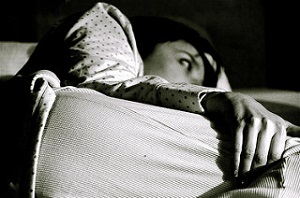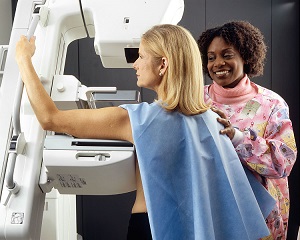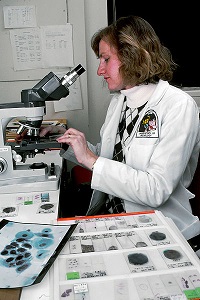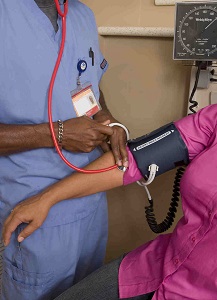No one brings up menopause in everyday casual conversation. In fact, you can probably list 10 other things you would rather talk about off of the top of your head. However, a discussion about menopause is inevitable, since every woman will face this physical change.

There are many false myths revolving around the inevitable phase of menopause. As if aging isn’t bad enough, there are apparently hot flashes, night terrors, and cold sweats to look forward to, as well.
With this inundation of rumor and myth behind menopause, it is necessary that you get the facts straight. Here are six questions that you should be asking about menopause, in addition to the answers you will likely hear from your doctor.
1. When Do The Necessary Tests Begin?
 With aging come the inevitable tests. Mammograms, pap smears, colon cancer tests, and so many more regularly recommended tests kick in at the onset of menopause.
With aging come the inevitable tests. Mammograms, pap smears, colon cancer tests, and so many more regularly recommended tests kick in at the onset of menopause.
However, how do you know when to start these tests? Do they begin at the onset? Is there a particular age at which they should begin? Or is there a symptom to keep an eye on?
The Doctor’s Answer
 All testing and screenings should be personalized and catered to your medical history and family history. If you have a familial history of colon cancer, then your doctor will likely start your colon screenings earlier than anyone else, for example.
All testing and screenings should be personalized and catered to your medical history and family history. If you have a familial history of colon cancer, then your doctor will likely start your colon screenings earlier than anyone else, for example.
Some diseases and conditions, such as cervical cancer, do not progress rapidly. Therefore, if you are over the age of 80, your doctor will not worry about your cervical screenings. If you are over the age of 50, then the recommended screenings include pap smears, mammograms and colorectal cancer screenings. These screening recommendations revolve around statistics and the likelihood of you contracting these conditions.
 Always ask your doctor about the risks and benefits for each screening or test. You are not in the wrong to ask about any alternative screenings, either.
Always ask your doctor about the risks and benefits for each screening or test. You are not in the wrong to ask about any alternative screenings, either.
You should feel comfortable asking these questions with your doctor. If your doctor does not make you at ease, then you should find a new physician quickly.
In addition to these screenings for anyone over 50, doctors will usually also recommended blood pressure screenings, diabetes tests, high cholesterol readings and osteoporosis screenings.
With all of these additional screenings and tests, it becomes a relevant question to wonder how menopause will change your daily habits.
2. Will Menopause Require Any Changes In Daily Habits?
Menopause may increase your chances of heart disease, which is also the leading cause of death in women. Therefore, you should be monitoring these associated risks, such as high blood pressure, diabetes and obesity when you are dealing with menopause symptoms.
The Doctor’s Answer
Menopause officially begins one year after your last period. Once you do not have a period for 12 months, you can mark your calendar for a few fun years of menopause to endure.
Once you are at this monumental moment, you should alert your doctor. Your physician will likely run tests to monitor your blood pressure, in addition to ask questions about daily lifestyle habits, such as eating, drinking and smoking.
Obesity and diabetes play a major role in your health after menopause as well, so expect a few questions regarding your current medical conditions.

Menopausal women are at a higher risk of osteoporosis, so you will want to increase your calcium intake. The National Osteoporosis Foundation recommends that the average woman consume 1,200 milligrams of calcium in addition to 800 international units of vitamin D every single day.
In fact, this amount of calcium is necessary for any woman over the age of 50. So, if you do not hit menopause by the age of 50, you might want to begin this new supplemental regiment.
Some women consult their physicians about using hormone replacement therapy to combat the stereotypical symptoms associated with menopause, including night sweats and vaginal dryness.
 However, this is something that you should address with your doctor, as there are many risks and benefits to weigh.
However, this is something that you should address with your doctor, as there are many risks and benefits to weigh.
Menopause undoubtedly affects your health in all shapes and forms. Sex is not exempt from these side effects. Therefore, you should think about asking your doctor how menopause will change your sex life.
3. How Will Menopause Affect Sex Drive?
One of the common side effects of menopause is vaginal dryness. Many women experience this detrimental side effect. Therefore, it is imperative that you preemptively ask your doctor about your future sex life.
In addition to painful sex, it is also quite normal for women to lose interest in sex. You should get yourself familiar about both these issues ahead of time, and while you are experiencing menopause.
The Doctor’s Answer
 A drastic drop in estrogen is the main reason for the sex-related side effects of menopause. During menopause, a woman’s body begins to produce less and less estrogen. Estrogen is responsible for naturally lubricating the vagina, in addition to boosting libido.
A drastic drop in estrogen is the main reason for the sex-related side effects of menopause. During menopause, a woman’s body begins to produce less and less estrogen. Estrogen is responsible for naturally lubricating the vagina, in addition to boosting libido.
There are other causes for a decreased sex life as you age, but there are also solutions for them all. Thyroid issues, heart conditions, and plenty more are all common culprits, so it is best for you to consult with your doctor before trying any form of treatment. Once you have this discussion with your doctor, you will likely try lifestyle changes, or a new medication.
Before resorting to anything drastic, try a natural gel like one of those from www.HerSolution.com to increase your sex drive and add some natural lubrication. It is imperative you bring this up with your doctor before trying this natural treatment. This is necessary as your doctor can talk about any allergies you might have, any medications you currently take, and any existing health conditions that will not make this gel effective.
 Sometimes the answer is as simple as stopping a current medication that you are taking. If you are looking to enhance your sex life then you should open up a conversation about it with your doctor.
Sometimes the answer is as simple as stopping a current medication that you are taking. If you are looking to enhance your sex life then you should open up a conversation about it with your doctor.
Speaking of medication, many women wonder about the daily aspirin consumption. Does menopause mean you should start taking aspiring daily?
4. Does An Aspirin A Day Keep Menopause Symptoms At Bay?
One of the common myths about growing older is that you should start taking one aspirin a day. Some people follow this routine and swear by it, but you should certainly bring this possible change up to your doctor before attempting it.
The Doctor’s Answer

One baby aspirin per day can indeed lower your risk of developing heart attacks and strokes. However, this does not necessarily mean that it is the right decision for everyone.
Aspirin is a known to thin the blood and allow for easier blood flow. If you suffer from blood clotting issues or stomach ulcers, or if you are on blood thinners, then your doctor will highly advise you not to try one baby aspirin per day.
It could actually become detrimental in the form of stomach bleeding or blood clotting complications. One baby aspirin a day doesn’t sound much fun anyway, but how about a glass of wine per day?
5. Isn’t A Glass Of Wine A Day Good For You?
The aspirin might not be an option, but how about a glass of wine a day? After all, you have heard so many people say one glass of wine a day is actually good for you. And, not to mention, your menopause symptoms probably make you want to have a stiff drink.
The Doctor’s Answer
 Not necessarily. One glass of red wine may work to reduce the chance of heart disease. However, the effects of drinking more than one drink per day are much more severe than the benefits of one glass a day could offer.
Not necessarily. One glass of red wine may work to reduce the chance of heart disease. However, the effects of drinking more than one drink per day are much more severe than the benefits of one glass a day could offer.
Studies show that 27 percent of women over the age of 75 have two or more alcoholic drinks a day. This study also shows that women who steadily drink at least seven drinks per week are more than 50 percent likely to have problems with thinking and memory in their old age. The statistics are stronger with the worse outcomes, so simply skip the glass of wine and aspirin per day.
Change is inevitable as you age. If you find yourself single and suffering from menopause symptoms, then you may be curious about how your sex life will still work and if there are any benefits to menopause.
6. Do You Still Need Testing For STDs?
Menopause rules out pregnancy, but does it also rule out any possible STDs? One would think that the benefit of menopause would be not using a condom, but you might want to rethink that decision.
The Doctor’s Answer
 It is true that you will no longer have the ability to become pregnant, however this does not protect you from STDs. Anyone of any age can suffer from an STD, and they are just as dangerous in your adulthood as they were when you were younger.
It is true that you will no longer have the ability to become pregnant, however this does not protect you from STDs. Anyone of any age can suffer from an STD, and they are just as dangerous in your adulthood as they were when you were younger.
Recent studies are showing that elderly women are getting it on more. While this is fantastic for them, the rapidly growing STD statistic is not. The Centers for Disease Control and Prevention have conducted studies into this fact, and they found that the rate of syphilis, chlamydia, and gonorrhea have tripled among women between their 40’s and 60’s.
Just because you can have sex without a condom, it does not mean you should, at any age. The only exception is if you have been married for many years, and if you are 100-percent positive that your spouse is faithful.
Menopause doesn’t have to be the dreaded life event that everyone assumes it is. Start asking your doctor these questions today, so that you can prepare yourself for the change when it does occur. Live a healthy lifestyle, so menopause will be much easier for you, as well.
